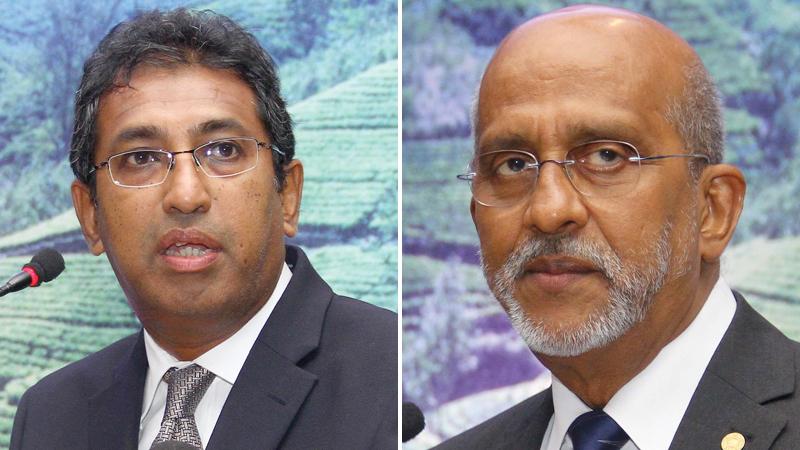
The government will assist the tea industry to enhance Research and Development (R&D), a vital area, which would help the industry to be in a better position amidst the rapidly changing global market conditions, State Minister of National Policies and Economic Affairs, Dr. Harsha de Silva told guests at the 124th Annual General Meeting of the Colombo Tea Traders Association (CTTA) last week. The Minister said research and development, a vital cog in any industry should be given top priority. However, successive governments had failed to recognise the importance of this aspect particularly for the tea industry which could have been ahead of many of its export competitors who benefit from modern technology.
He said harvesting and the production process should be modernised and post production needs to be automated.
“I proposed the need to automate the Colombo Tea Auction 18 years ago. Integrating technology with automation will benefit the industry immensely,” Dr. de Silva said. Since the first tea auction in 1883 at the offices of Somerville and Co. down Queen’s Street (now Janadhipathi Mawatha), it had gone through many changes over the years to where the auctions are now held, the Ceylon Chamber of Commerce building at Nawam Mawatha. However, despite much hype about modernising the Colombo Tea Auction which would help speed up trade and minimise malpractices, it is still to see the light of the day. The Minister also urged the tea industry stakeholders to focus on diversifying the export market and increase the volume of value added exports that would give a niche over competitors.
“We need to focus on improving quality to protect the image of Ceylon Tea. However, extreme caution and protectionism is failing us. We need to make the country a centre for tea in the world,” the Minister said. CTTA Chairman Anselm Perera who was re-elected for another term, said the tea industry which provides livelihood to over two million people and bringing in the much needed foreign exchange to the country would have faced a severe blow had Japan put a complete stop to imports from Sri Lanka.
“We are on the brink of losing a vital market for out high and medium growns as several shipments were rejected by Japan in the recent past valued to the tune of over Rs. 1 billion due to exceeding the default residue levels set by Japan on MCPA, a substitute weed killer used across the word in place of glysophate,” he said.
The CTTA chief said poor bureaucratic communication on the Maximum Residue Levels (MRL) imposed by the Japanese authorities was the reason for the rejection of Sri Lankan tea to Japan.
Former Sri Lanka Tea Board Chairman Dr. Rohan Pethiyagoda at his last media briefing before stepping down as the head of the tea industry regulator this year, said the industry lost over Rs. 26 billion in export earnings due to the ban on glyphosate.
“The ban on glyphostae was the second catastrophe the tea industry faced after the move to nationalise the plantations in the 1990s. The authorities were swift to impose the ban within next to no time but when it came to de-banning they took a longer time. The ban was lifted in April. However, it still has to be gazetted and implemented,” Perera said. The ban on glyphostae was imposed in June 2015 under the Import Export (Control) Act of 1969.
“Tea industry experts said the popular weed killer had stood the test of time for over 40 years with global acceptance as a cost effective weedicide.
However Sri Lanka failed to recognize this fact and as a result paid the price of losing a large share of its export income from low production,” Perera said.
The CTTA chief said the authorities must come down hard on those adopting short term measures to maximize profits compromising industry standards.
“Short term profits will be only for a short time,” he said.
Pix: Sulochana Gamage
